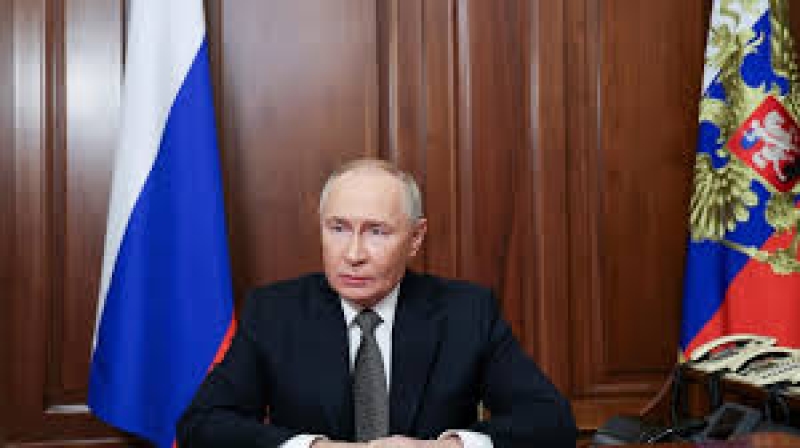- Khaleda Gets Eternal Farewell from Over a Million of Hearts |
- Sea of Mourners Gathers to Pay Tribute to Khaleda Zia |
- State mourning begins, state funeral for Khaleda Zia at 2 pm |
- Kamal Hossain: Khaleda Zia was ‘a patriot and democratic guardian' |
New Russian Missile Can’t Be Stopped by the West: Putin

Russian President Vladimir Putin
Russian President Vladimir Putin announced on Thursday that Russia had launched a new intermediate-range ballistic missile at Ukraine, a move he claimed was in retaliation for Ukraine's use of U.S. and British missiles targeting deep inside Russia. Putin described the missile, named Oreshnik (hazelnut tree), as capable of flying at ten times the speed of sound, rendering U.S. air defense systems powerless. He also suggested it could be used to strike any country supporting Ukraine’s missile attacks on Russia.
In a televised address, Putin warned that Russia reserved the right to target military facilities in nations that allow their weapons to be used against Russian targets. This remark followed President Joe Biden’s recent decision to permit Ukraine to deploy U.S.-made ATACMS missiles for strikes inside Russia.
The Pentagon confirmed that Russia's missile was an experimental intermediate-range weapon, likely based on the RS-26 Rubezh intercontinental ballistic missile, which can carry both conventional and nuclear warheads. U.S. officials were notified of the launch through nuclear risk reduction channels.
The missile struck the central Ukrainian city of Dnipro, hitting a well-known missile factory, according to Putin. Ukrainian President Volodymyr Zelenskyy condemned the strike, calling it an "obvious and serious escalation" and a violation of the UN Charter. He also criticized the lack of global reaction to Russia’s missile use, warning that such actions could escalate further.
Putin's announcement came after Ukrainian strikes on Russian territory earlier in the week, including attacks in Russia's Bryansk and Kursk regions. These actions, which caused a fire at an ammunition depot and casualties among security personnel, were cited as the reason for Russia’s retaliatory missile strike.
The escalation also coincided with rising tensions, as the U.S. allowed Ukraine to use longer-range missiles against Russian targets, while Putin issued a new military doctrine permitting potential nuclear retaliation even for conventional attacks supported by nuclear powers.
Russia's missile strike on Dnipro marked another escalation in a conflict already fraught with nuclear rhetoric. While military experts argue that intermediate-range ballistic missiles (IRBMs) are difficult to intercept, there is skepticism about Putin’s claim that these missiles are "unstoppable." Some analysts suggest that Russia may be using this new weapon to signal both to Ukraine and the West that it is willing to escalate further, including potentially using nuclear-capable missiles.
As the war enters its 1,000th day, Russia remains in a stronger position on the battlefield, particularly in eastern Ukraine, but Ukraine’s ability to strike deeper into Russian territory with advanced missiles could complicate Russian military operations and logistics.
Despite the heightened rhetoric, the Biden administration has remained firm, with White House press secretary Karine Jean-Pierre stating that the U.S. will not change its nuclear posture in response to Russia’s threats. She emphasized that Russia, not Ukraine, is escalating the conflict by using weapons from countries like North Korea and Iran.
Analysts suggest that while the loosening of missile restrictions may not immediately alter the war’s trajectory, it increases the vulnerability of Russian forces and could impact the logistics of their operations, particularly as Ukraine continues to target Russian infrastructure and military assets.

